Should I Sit For The D.ABNM?
I get an email about once a month asking me the same question… Is the D.ABNM worth the headache?
The overall message I try to give is that… Yes, it has helped my career and there is a very good chance it will do the same for you. Work hard and take the test.
But the truth is that not everyone that can take the exam should take it. If someone is on the fence and is going to half-ass it, then don’t bother. If you’re taking it before you’ve had exposure to a lot of different case types and found someone to have higher end discussions on neuromonitoring, you’re also wasting your time.
I’ll give you 7 discouraging facts that might make you think twice, and then 7 encouraging facts that might kick your butt in gear.
7 Discouraging Facts About The D.ABNM
- The written is a formality that doesn’t mean anything anymore – People use to take the written D.ABNM exam, pass it and then never attempt the oral boards. Why? Because they were using it to now label themselves John Doe CNIM, D.ABNM (board eligible). I’ve seen some people use that as leverage to get a raise or a better position with a different company. For some reason, employers were forking out some additional cash or hiring the board eligible candidates. I guess they figured they better get them while they can? Anyways, I think most companies have figured out that the written exam was just the warm-ups to the oral boards. Plus, the ABNM has no longer recognizes the term “board eligible.” You are either board certified, not certified or in the examination process. Bye-bye to that loophole.
- No one knows what’s going to be on the test – You can prepare for a year and still get asked questions you never even knew to review. I got asked questions that had nothing to do with the case type I selected. As long as there is some loose association… game on. Sure, there are some guidelines given to build a plan, but they are definitely not tipping their hand.
- No one knows how to prepare for the test – I’ve got to be in the upper percentile of people in the world that has taken tests. All of the clinical exams, national boards, state boards, DACNB boards, D.ABNM boards, etc. They all has so much in common, except for the D.ABNM exam. Coming from an occupational therapy and chiropractic background, all of my oral exams have centered around the following framework: patient presents with >>> here are some images or blood work >>> do a history and physical exam >>> figure out what it is and prescribe an appropriate treatment. Unless your name was associated with a pathology or orthopedic test, I didn’t have to remember people’s names. And definitely not dates and publications. For the D.ABNM, the process looks like this >>> “can you tell me why” >>> answer correctly >>> tell them where you learned it >>> “ok, but…” >>> answer follow-up question with another source, or be aware of their source and give some reasoning for discrediting it. I can speak for Ph.D.’s, but this was a test I had to rework the way I answered a question like no other test I’ve taken before in my life. It ended up being a new skillset.
- The Pass/Fail rate is dismal – It’s really, really low. And these are the physicians in the field. I’ve mentioned I was the only one in my group to pass that time (< 8%), but that doesn’t account for the people that also failed the written. I know it fluctuates. I’ve heard the rumors of a certain time where it seemed everyone was passing. But still, that is one difficult test to pass.
- It’s $1,600 all at once (at the time of me writing this). – Did you see the pass rate I mentioned above? That is one large gamble. Some of you might have to pay for it all on your own, so which isn’t as easy as playing with house money. Oh ya, you’ll have to pay to take a recertification exam a couple times in your career.
- It didn’t end up being all that it should be – From the discussion I’ve had, the board was created to give oversight privileges. And there are still areas that do it that way, but I know that’s not the norm. If insurance isn’t paying for it, then it isn’t going to happen that way. Ever since the remote oversight with an MD/DO took over, the D.ABNM stands little chance of gaining acceptance on its own. The AMA has a little more pull than the ABNM. But if you’re not convinced that the current model is going to be a sustainable one (especially with oversight restrictions being placed on them), there might end up being a tipping point. I bet most non-MD or non-DO D.ABNMs feel underappreciated and underutilized.
- Barely anyone even knows about it – Most people that are involved with IONM in some capacity know about the CNIM. Although it is more than it used to be, if you talk to surgeons, OR staff or hospital administration, they are not familiar with the credentials at all. Hard to give additional credit to something you don’t know exist.
7 Encouraging Facts About The D.ABNM
- You’re forced into being better than you were – If you put in the time to pass the oral DABNM, the chances of you being a phony are pretty small. It doesn’t necessarily mean your God’s gift to IONM, but you’ve been forced into countless hours of studying every nook and cranny of neuromonitoring. If you can retain that information, you should be more than ready to be the person with the added initials.
- New doors will open up for you – I plan on having a 30-year career in IONM. That’s why I wanted to get a jump on preparing and passing the D.ABNM. That’s a long time to have some credentials that have a very high barrier and the industry holds in high regard. Just take a look at the names of the people that have had the D.ABNM. There are some pretty successful people on that list. And because it is so short, it is easy for people to identify you with others on that list. While it isn’t easy to get there, it is easy to borrow the authority they’ve brought to the credentials. It will be impossible for me to look back and try to figure out what my ROI will be, but I’m sure I’d be very happy with results.
- You’ll probably make more $$$ – if companies were willing to pay for people DABNM board eligible, and the pass rate is really low for the oral boards, don’t you think companies will be willing to pay a little more to have you on their team? There is a lot more that goes into it than passing a test, but it will definitely get you in that conversation.
- Hospital administration actually is learning about the DABNM – Until I got into a management roll, I had no idea what was going on in contract discussions. As it turns out, having a DABNM on your team makes for a very strong sales pitch. If you want to know what the value of having the D.ABNM is to a company if you can’t bill the insurance for the professional component, that is a good place to start.
- You’ll find yourself running in other circles – It’s a club, so it’s natural to want to meet the other members. There’s no secret handshake or anything, but you’ll find your sphere of influence widening with people worth knowing. If not for the conversation, for the fact that a lot of them really like their wine and beer during these conferences. IONM gossip is not as boring as you might think.
- Your role on your team might change – if you’re already not that guy or gal, you’re going to be the one people look to for advice. Some might hate the fact that they have to train other people, but I see it as just one other avenue of improving your value.
- You never know what the future holds – I know… that can be taken either way. But the optimist in me believes that the D.ABNM is going to have a second wind. If the amount of IONM cases is estimated to go up by 8-9% per year, government and some large insurances are limiting the amount of oversight cases per physician and oversight physicians continue to be in shortages, then something’s got to give. I don’t think deputizing the 150 DABNMs recently credentialed is the solution, but it should be part of the conversation.
Here’s Some Help
I plan on putting together a webinar on how to prepare for the D.ABNM orals and give it out for free. I think most people have genuinely put in the effort to take that test head on, but were never given any coaching by someone that’s been through it. Your chances of passing the exam will go way up if you prepare for it the correct way.

Joe Hartman
Subscribe to our Awesome Newsletter.
2 Comments
Keep Learning
Here are some related guides and posts that you might enjoy next.
How To Have Deep Dive Neuromonitoring Conversations That Pays Off…
How To Have A Neuromonitoring Discussion One of the reasons for starting this website was to make sure I was part of the neuromonitoring conversation. It was a decision I made early in my career... and I'm glad I did. Hearing the different perspectives and experiences...
Intraoperative EMG: Referential or Bipolar?
Recording Electrodes For EMG in the Operating Room: Referential or Bipolar? If your IONM manager walked into the OR in the middle of your case, took a look at your intraoperative EMG traces and started questioning your setup, could you defend yourself? I try to do...
BAER During MVD Surgery: A New Protocol?
BAER (Brainstem Auditory Evoked Potentials) During Microvascular Decompression Surgery You might remember when I was complaining about using ABR in the operating room and how to adjust the click polarity to help obtain a more reliable BAER. But my first gripe, having...
Bye-Bye Neuromonitoring Forum
Goodbye To The Neuromonitoring Forum One area of the website that I thought had the most potential to be an asset for the IONM community was the neuromonitoring forum. But it has been several months now and it is still a complete ghost town. I'm honestly not too...
EMG Nerve Monitoring During Minimally Invasive Fusion of the Sacroiliac Joint
Minimally Invasive Fusion of the Sacroiliac Joint Using EMG Nerve Monitoring EMG nerve monitoring in lumbar surgery makes up a large percentage of cases monitored every year. Using EMG nerve monitoring during SI joint fusions seems to be less utilized, even though the...
Physical Exam Scope Of Practice For The Surgical Neurophysiologist
SNP's Performing A Physical Exam: Who Should Do It And Who Shouldn't... Before any case is monitored, all pertinent patient history, signs, symptoms, physical exam findings and diagnostics should be gathered, documented and relayed to any oversight physician that may...

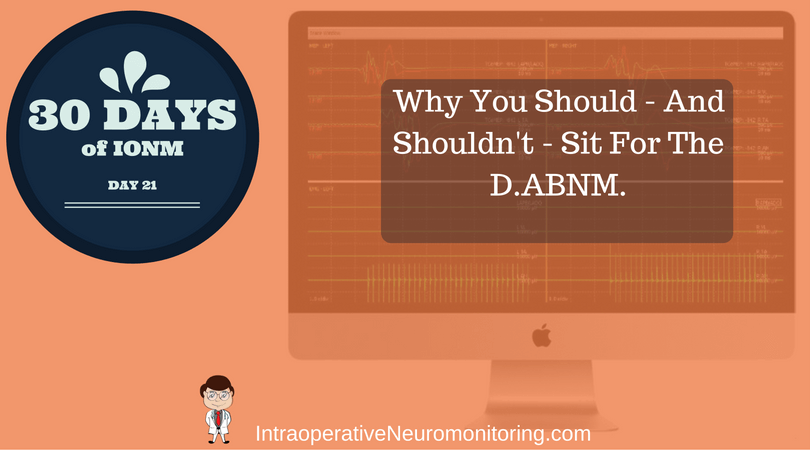
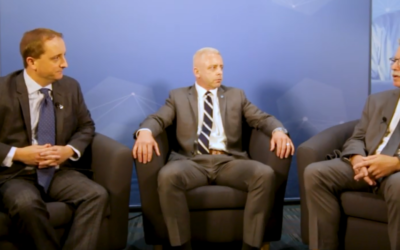
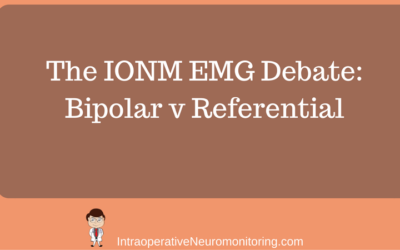
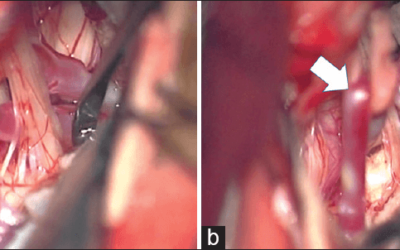
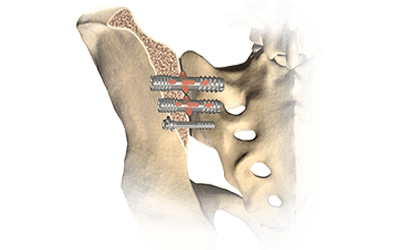


A few comments based on my experiences… I’ve seen this test from both sides, and I can state with absolute certainty that the test isn’t “political” or “predetermined” in any way like I’ve heard people say. In fact, we take fairness and ethics very, very seriously. I think many people feel the test is “fixed” because someone they know and admire failed the test. Sometimes, the best tech you know is still a tech at the end of the day because he/she just can’t conceptualize their work; can’t think about it at a higher level. Joe, you’ve been in the field for a long time, and I know you’ve met people who think they are high-level neurophysiologists, but they’re really not very good. One of the purposes of the test is to vet the knowledge and “professionalism” of the test-taker. The one question that so many people don’t ask themselves is “why” (e.g., why did I choose to use anodal stimulation for my MEPs?). One must have a reason for making decisions, and knowing “why” you did something, well, it’s the most important thing that differentiates the tech from the IONM-P. Regardless of whether or not one has a doctoral degree, if you can’t get past being a tech, you’ll never pass the test.
On another topic… why do we need to cite the literature in the exam? First, it shows that you understand “why” you make certain decisions in the OR. Indeed, having a solid knowledge of the literature gives you a basis upon which to build your practice. Second, it prepares you for working at that higher level. When I was working in the OR every day, I found myself citing papers to surgeons or anesthesiologists on a weekly basis. Now that I do more administrative work, I cite papers in conversation on almost a daily basis.
The benefits of the credential are many. After passing the test, my base salary went up over 50%. I regularly get job offers for base salaries well of $200k, and I know D.ABNMs who make well over $300k. Why are we worth so much money? Well, the neurologists may bill the insurance, but in many cases their knowledge of IONM is limited. Who is teaching neurologists behind the scenes? Us. And, you need a 3rd set of eyes, a real expert, to jump in and help out when the shit hits the fan. In most companies and some university settings all-across the country, D.ABNMs serve as mid-level practitioners whereby neurologists formally delegate their work to us, which allows them to see more patients, particularly in situations when one cannot get paid. Example: why would we give our medicaid cases (where we’ll never get paid) to an outsourced neurology group and lose money on the case? I can cover the case and save us from losing the money. By the same token, who is covering those late night, weekend and holiday cases that neurologists refuse to cover? We do, and that reduces liability. Also, D.ABNMs started in the OR, working up from the bottom, so we’re the ones with all of the surgeon relationships. Certainly the corporations don’t own those relationships, and neither do the neurologists. The surgeons are loyal to us, not the companies for whom we work. We go on sales calls to woo surgeons and hospital administrators with our knowledge and expertise. All of these things and more make us worth a lot of money. If D.ABNMs aren’t making that money, they are under-valued and under-paid.
The last thing I’ll say is that the pass percentage is probably higher than you think. It was lower before the standards were raised. Now that we have such strict requirements in the initial application process, the people who end-up taking the orals tend to be more prepared.
We need more D.ABNMs. It’s the only way to make the credential more widely known. No one should decide not to take it because of the rumors they hear, or because someone they know failed. I know people who failed and came back and passed. They deserved to fail the first time, they deserved to pass the second time.
To the readers of this awesome blog, here’s more information on my experience taking and passing the oral exam. There’s lot of good tips on how to prepare. http://neurologiclabs.com/the-unpassable-test/
Thanks, Rich. I’m about to release my D.ABNM Crash Course (11/14/16) which gives similar advice to your first paragraph. I advise the learner to go through every setting they’re using and actions taken in the case and ask 3 simple questions…
1) Why did I choose this?
2) When would I elect to make adjustments?
3) Why wouldn’t I do something else?
As for your second recommendation, that’s coming in today’s post.